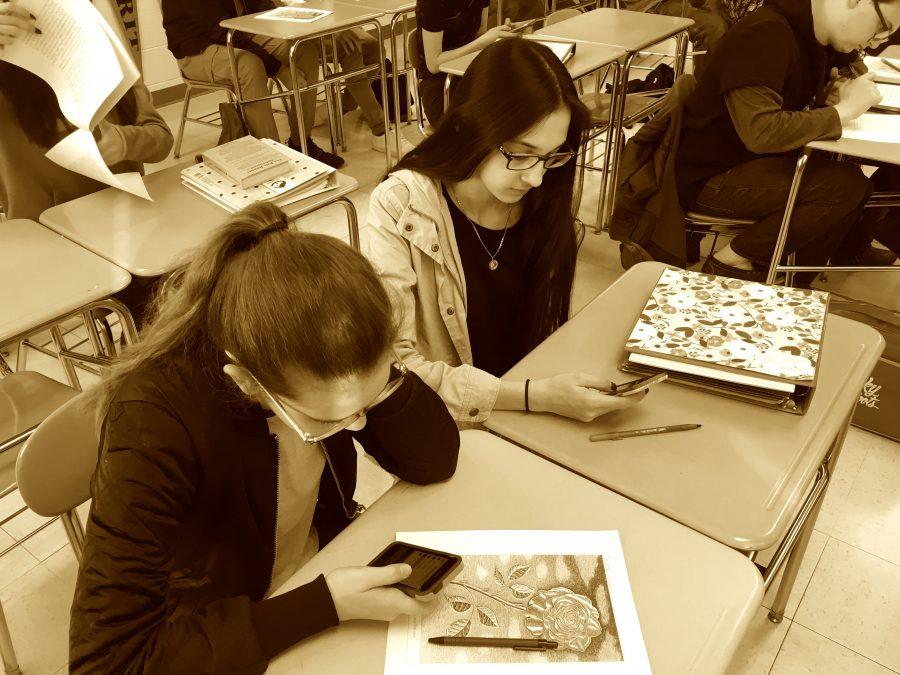Photo by Photo by Alison Mckeough
Students checking their phones regularly have become commonplace with the teenage generation.
Screenagers Part II: Are You Addicted?
Part II of the series: The Red & Black follows up with the most recent take on students and technology use.
I’m sure we’ve all fallen victim to it- the next generation of Smartphones is announced and all of a sudden the device that we so commonly use is no longer good enough. To us, every generation means an increase in quality and content; yet, have you considered how the next generation of Smartphones may affect the next generation of kids? Take for example yourself, I’m willing to bet that if I were to ask you to name the one thing you can’t do without a majority would answer something relating to your phone or internet. Fatima, grade 12, states: “My phone is very important to me, I spend about four hours a day on my phone. I use it to communicate with my friends through texting, Face Time, Instagram, and Snapchat.” No, it’s not family, friends, significant others, our pets; instead, some would choose a little piece of circuitry and wiring that fits in your pocket, just think about that. Adds Fatima, “Yes, people are addicted — some people can’t spend hours without it, this include myself.” In Screenagers, this addictive mindset and oblivious state these phones seem to put people into is touched on, as the director, Delaney Ruston, tries to emphasize how much these devices have taken over our lives.
For starters, while many of us don’t stare at a screen-whether phone or a computer- for hours on end, instead opting for smaller increments, the time spent most certainly adds up.”I’m always on it unless I am at work. I would guess a total of 12 hours a day,” claimed Raven, grade 12. A recent study claims the average person spends six-and-a-half hours a day looking at their phone-over a quarter of a day! While this statistic itself is already staggering, it still doesn’t do enough justice to further explain the harm it has on a person overall. For many people, they are under the assumption that because of being able to use their phones, while simultaneously completing other activities, they are a great multitasker; unfortunately, this is just a fallacy. While this preconceived notion is one we would all like to believe, it is scientifically proven humans are not made to multitask. Junior Eduardo admits, “I don’t really multitask and if I do, I usually mess up.” In fact, in the film, it is stated that while we seem to believe we are accomplishing more by using our phones-and thus becoming more successful- realistically we are just doing more activities and doing much worse at each one. In a way, it’s sort of like spreading yourself thin if you were to say participate in a multitude of after-school activities and trying to complete certain requirements in each all at once. What makes this situation worse for teens however comes down to how our mind is programmed: our brains sporadically change their focus on a variety of different things, meaning by constantly switching between apps and such on our phones we are training our brain to continue this practice- making things even worse. Overall, smartphones come with their advantages no doubt about it, but just like everything in this world it comes at a price.
With this in mind, while it may seem like a blasphemous thought it’s very likely you may have some degree of addiction to your phone, and or other similar devices. Are teens addicted to their phones? Freshman Jacob responds, “DEFINITELY. People are non-stop with their phones. I’d even put myself in that category, just to a lesser extent.” While technology has become de facto in our modern society, we can take strides to limit its reach into our lives. All-in-all, next time you decide to pick up your cellphone really ask yourself: is it worth it?
